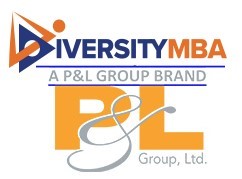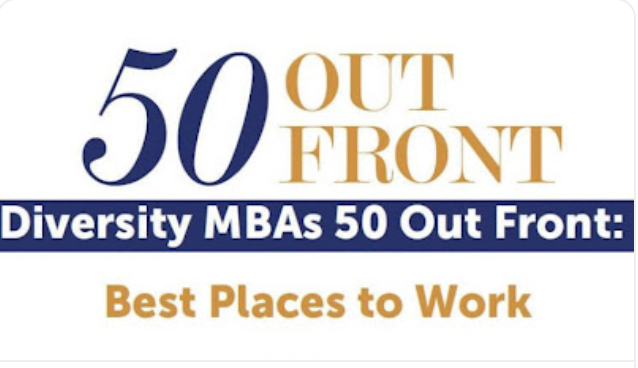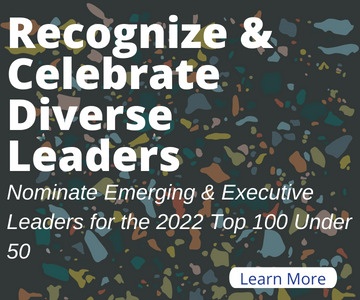For this year’s rankings, Accenture moved up a notch from number three to number two and represents a real challenge to Kaiser Permanente for the top spot; it was among the top 10 companies in five of the six “Best in Class” categories — for representation, recruitment, retention and inclusion, succession planning and accountability.
“At Accenture, we take the widest possible view of inclusion and diversity, which goes beyond gender, race, religion, ethnicity and sexuality to create a work environment that welcomes all forms of differences,” says LaMae Allen deJongh, managing director of Accenture U.S. human capital and diversity. “Each employee is a respected member of our team; we recognize and value individual similarities and differences. Our workforce is a reflection of the clients we serve, the suppliers with whom we do business and the communities in which we operate.”
Inclusion and diversity are fundamental to the company’s culture and core values. “We have a relentless focus on continuing our journey to foster an innovative and collaborative work environment, which helps our people be successful and enables Accenture to compete effectively in the global marketplace,” adds deJongh.
One way it does so is through its wide range of employee resource groups, including the InterFaith Networking Group (including Christian, Jewish, Muslim groups), Men’s Interest Group, Multicultural Interest Group, and the Work/Life Wellness Interest Group.
In addition, Accenture provides resources to help employees manage personal and career responsibilities such as flexible work arrangements, Hours That Help, telecommuting, back-up dependent care, and parental and adoption leaves. Simply put, says deJongh, “Developing people so they can achieve higher levels of performance has always been a key competence and hallmark of our company.”
The company’s long-standing commitment to attracting, retaining, and promoting diverse employees is critical to its ability to deliver high performance to clients and to its overall success. The numbers tell the story. The global management, consulting, technology services, and outsourcing firm has 215,000 employees and $21.5 billion in revenues. Accenture employs approximately 70,000 women around the globe. In the U.S., more than one-third (38%) of the workforce represents diverse backgrounds, including African-American, Hispanic-American, Asian-American, and American Indian. “All of our people contribute to an environment that’s rich in diversity, acknowledges each individual’s strengths and promotes respect, personal achievement and stewardship,” notess deJongh.
Accenture is currently reinvigorating its pipeline management process to better identify strong candidates and assess all of its diversity and inclusion efforts to determine where it can continuously improve on the initiatives it has in place or add new programs to creatively address areas of opportunity.
What’s on its agenda for 2011? Plenty, especially when it comes to Accenture and its employees giving back. Take for example, Accenture’s corporate citizenship initiative, Skills to Succeed. It’s committed to equipping 250,000 people around the world by 2015 with skills to get a job or build a business. Then there’s Eco Challenge, the company’s global environmental education program, which encourages employees worldwide to pledge to focus on how they can make their workplace – an Accenture office or a client site – more sustainable.
“At the heart of our inclusion and diversity strategy is finding the best people for the job, grooming them for global careers and exceeding their expectations through our visionary culture,” says Patrizia Pescatore, director of human resources. “By following through on these commitments, Accenture taps into new ideas and creativity that benefit our people and the communities in which we live and work and that ultimately, help our clients achieve high performance. Inclusion and diversity are absolutely central to our business, both today and tomorrow, and are critical strengths we must maintain and foster.”
When it comes to diversity, says deJongh, Accenture takes support from the top to move the needle. “CEO Pierre Nanterme communicates to employees that diversity makes Accenture a better company on every dimension,” she says. “A leader who can create a workforce that represents different styles, perspectives, and experience, will improve the company’s ability to deliver results in addition to fostering a sense of belonging and employee loyalty. As our workforce continues to grow, our commitment to diversity will help us strengthen our inclusive culture and continue to set Accenture apart.”




